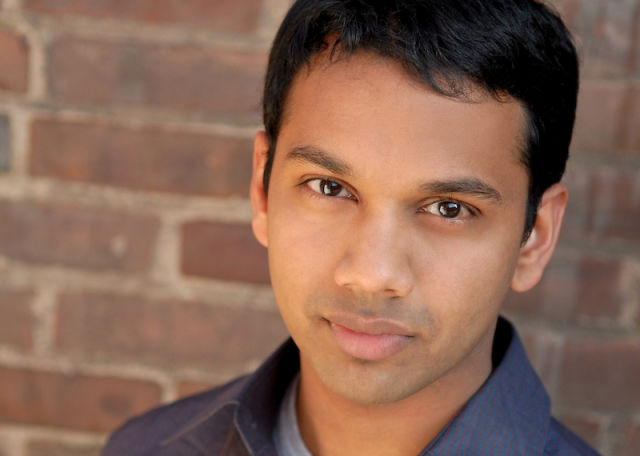What Happens When a Teenage Couple’s Sex Tape Goes Viral—in a Conservative Indian City?

Director Snehal Desai
It’s one thing when Paris Hilton’s sex tape goes viral.
It’s an entirely different thing when it's a sex tape starring a pair of Indian teenagers. That’s what happened in Delhi in 2004, when a cell-phone video clip of two 17-year-olds having sex spread across the country. For Anupama Chandrasekhar, the resulting scrutiny of the girl’s sexuality was infuriating. But it also inspired the journalist-turned-playwright to write Free Outgoing, a Chennai-set drama that explores gender issues, sexual double standards, and the collision of technology and traditional values.
The play went up at London’s Royal Court Theatre in 2007, and was performed for the first time in India last year. Now it’s getting its US premiere, courtesy of Portland presenter Boom Arts, which is bringing up a Los Angeles-based cast for a four-day run (they’ll return to LA to perform later this month). We spoke with director Snehal Desai about growing up with Indian parents in the US, India’s struggle to find its identity, and why the story in Free Outgoing has become more believable than ever.
What was your initial reaction to Free Outgoing?
I was instantly pulled into the world of the play—into the timeliness of it, the starkness and frankness, but also the humanity in it. I’m very interested in the intersection of technology with our lives. And the central premise is this video of two students having sex that gets spread via cell phones. What the kids in this play do is what kids have done since time immemorial. These are teenagers being teenagers, but it’s because of technology that the consequences are extremely adult, and extremely far-reaching. It’s really about where the responsibilities lie, and also the moral and societal structures that don’t take into account the ways technology is changing how we interact.
Can you talk more about the play’s setting in Chennai?
Anupama [Chandrasekhar, the playwright] set it in Chennai, a city that’s known for being conservative, for holding onto patriarchal structures. If anything, she’s looking to turn the lens on Indian society and behavior. She’s not afraid to be controversial and shed light on problems in Indian society. As Anupama has said, the glossy side of India is seen through Bollywood everyday. What isn’t seen is the other side. But you can’t do that anymore—like with the gang rapes a few years ago. India is really struggling to find its identity, and the play in a very smart, unafraid way confronts those issues.
Though it’s set in India, I think there will be a lot of parents of teenagers in the audience, and I’m very curious to see what their reactions are and how they would deal with something like this—how they have dealt with things like this. The frightening thing for parents is that the technology moves at such a warp speed that it’s impossible to keep up; it’s impossible to constantly monitor. At the heart of it, it’s about the values you instill.
Your parents are Indian, but you were raised in the US.
As an Indian-American, I feel like I was brought up in a more conservative way than, say, my cousins in India. I was brought up with the traditions that my parents brought over—and they were raised in the ‘50s and ‘60s, so they’re really holding on to those traditions and culture and mindset.
Can you say more about the sexual and gender double standards explored in Free Outgoing?
At the heart of the story is a single mother raising two teenagers in a conservative society. The mother is in a lot of ways like Mother Courage: she’s doing her best to hold it together in a society that has constantly put up walls for a single mother or a single female to succeed. It’s not just the girl dealing with the gender double standard—we watch a mother deal with the fallout. That’s not particular to just India. That’s very much everywhere.
How has the play changed since it was first performed in 2007?
The play has become easier to believe. It’s so much easier now to share video, and you can do it so much faster and so much more clearly. Ten years ago, sharing a video would have been this little grainy thing. But now with an iPhone or a smart phone, a video can be instantaneously shared and be of a quality that can show everything—a person couldn’t deny or hide that it was them.
What else can audiences expect from this particular production?
We’ve been calling the play a pressure cooker. It is an intense ride—it starts at 60 and then keeps going, so suddenly you find yourself careening at 120. For me, I don’t feel like there is a judgment about the technology. It’s a given; it’s just a fact of our lives. It’s not like videos like this are going to disappear. So how do we live with this new element? Is this really something that should tear a family apart? Ultimately, the technology doesn’t judge. It’s really about the rules and customs and traditions the society has around it. We treat those as fixed things, but something is going to have to give in this collision.
Free Outgoing runs March 3-6 at PSU's Lincoln Hall Studio Theater.
